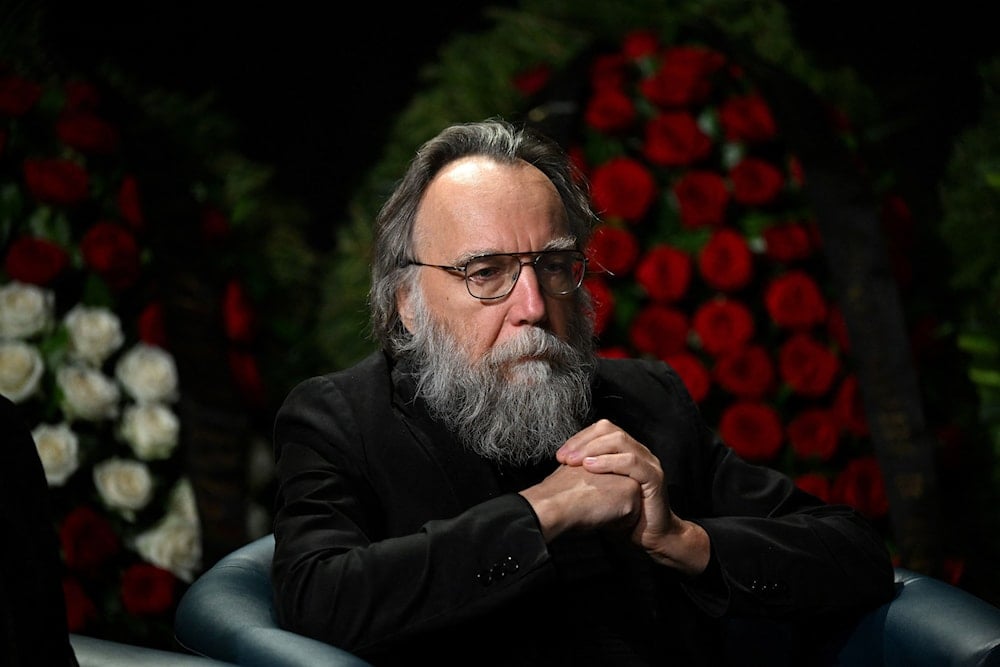Russia, China, India form axis of new order, Alexander Dugin argues
Alexander Dugin's op-ed frames Russia, China, and India as the civilizational core of multipolarity, arguing their deepening alliance reflects US hegemonic decline and the rise of a new world order.
-

Alexander Dugin at the funeral of his daughter Daria (AFP)
An op-ed published by writer and philosopher Alexander Dugin for Multipolar Press argues that Russia, China, and India now stand at the heart of a shifting global balance. Dugin describes the three states as the "civilizational core of multipolarity," contending that their alignment signals the decline of Western primacy and the emergence of a new order.
According to Dugin, India has long been targeted by the West, which sought to draw it away from Beijing by exploiting border disputes. Yet, he maintains, Moscow’s close relations with both countries have facilitated rapprochement. Recent US tariff hikes on Indian exports, he adds, only accelerated New Delhi’s pivot toward Russia and improved ties with China. "This is precisely what multipolarity means," he writes.
Eroding Hegemony
Dugin situates this shift within a broader erosion of US influence. Over the past year, confidence in the dollar has weakened as BRICS states, now including Saudi Arabia, Iran, and the UAE, have expanded trade in local currencies. This move has fueled debates about the sustainability of US financial dominance, particularly as major debt holders such as China and Japan reduce their holdings of US Treasury bonds. Analysts warn that Washington’s reliance on financial markets and speculative instruments exposes the West to vulnerabilities, echoing Dugin’s claim that "the West is left only with money and currency speculation, with financial pyramids on which BlackRock rests."
Meanwhile, multipolar institutions such as the Shanghai Cooperation Organization have gained new momentum. At its 2025 summit, members ranging from China and Russia to India and Iran pledged deeper security and economic coordination, openly positioning themselves as a counterweight to Western-led structures. Coupled with rising doubts over US leadership, global trust in Washington has fallen sharply in surveys; these developments point to an accelerating redistribution of power.
Multipolar Imperative
For Dugin, the significance lies in institutionalizing this cooperation. He insists that the partnership between Vladimir Putin, Xi Jinping, and Narendra Modi must advance beyond personal diplomacy into "an ideology, a strategy, and a philosophy of multipolarity" embedded across politics, education, economics, and industry. Only by doing so, he argues, can the three states secure their civilizational sovereignty.
He concludes with a stark warning: while Russia, China, and India are "called upon to create an entirely new world," the West must either adapt to this multipolar order or risk collapse "like the Tower of Babel."
Read more: Tariffs as political weapons face pushback from India, Brazil: NYT

 3 Min Read
3 Min Read








